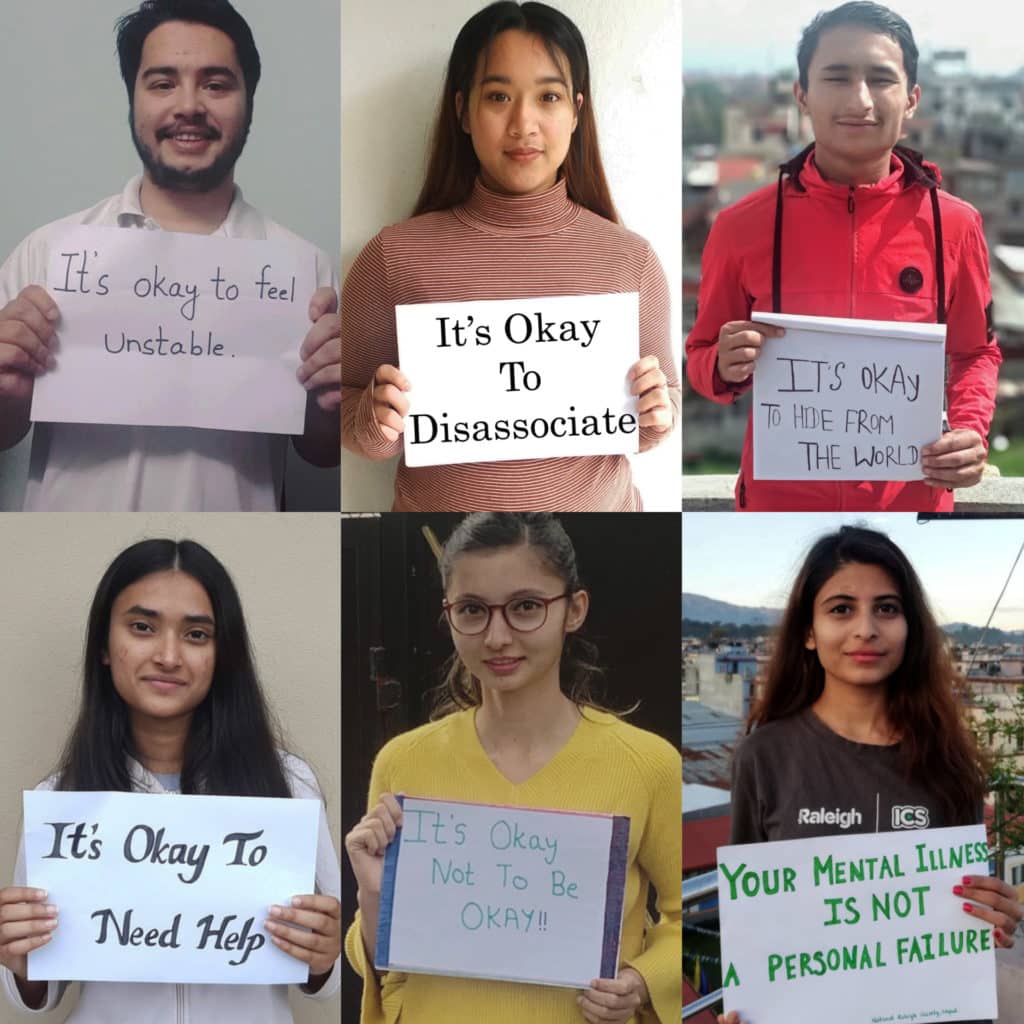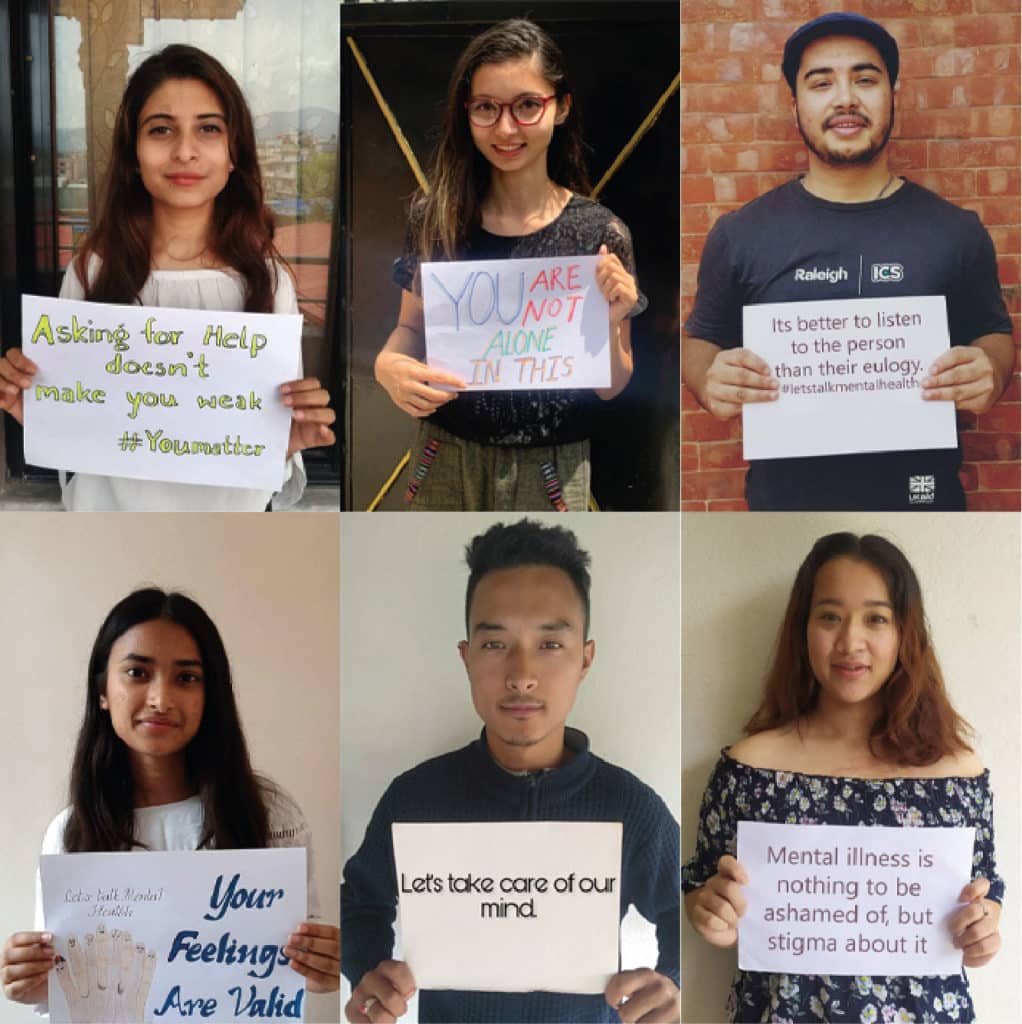Let’s talk about mental health: young people creating safe spaces
Let’s talk about Mental Health: Young People Creating Safe Spaces
One of the most challenging parts of international development is understanding, measuring and articulating the ripple effect of programming and the outcomes and impacts that our programming has beyond its design.
At Raleigh we have simultaneous attention on tangible development activities and sustainable outcomes alongside personal development for young people. This presents opportunities for us and the young people we work with to explore and consider how to learn, grow and develop as individuals, communities and societies.
We often find that the young people who volunteer are emboldened continue this exploration after their programmes have ended. One example of this is that our former volunteers regularly convene spaces and facilitate platforms for conversations that are important to them as individuals, but have a wider social agenda and interest as well. Recently, on 11 May, a group of Nepali alumni facilitated a webinar, their first in a series of online youth forums, on the subject of mental health. They looked to explore mental health during the time of lockdown and global pandemic, and more generally.
What began as an information sharing session on various facets of mental illness and wellbeing, became a conversation around their own experiences of mental health. The alumni made a safe space where radical vulnerability was not only possible but encouraged. Many spoke about their own challenges, strategies, and solidarity for others. One of the participants, Sulochana, revealed that “the webinar put light on my stigmas and helped get rid of it.” A number of other participants mentioned that if it was not for their experience of volunteering on a development programme, the courage to speak and the desire to create safe spaces to share may not have been possible.

Mental health and mental illness remain taboo topics, with stigma, discrimination, and judgment around the world, including here in Nepal. Mental health globally, and in development sector, is an elephant in the room. One of the standouts from the discussion was a desire not just to normalise these kinds of conversations, both among themselves and in wider society, but also to celebrate their individual and communal experiences. “We can help decrease suicide rate for instance by creating friendly environment for everyone. Where one can feel confident to share about their pain”, shared participant Apeksha.
This was combined with a commitment to affect meaningful change both for themselves and the world. “We realised that we as a youth needs to fight against this stigma. And make people aware about the healthy discussion on mental health.” Tulasha, vice-president of the National Raleigh Society Nepal. This sophisticated thinking goes straight to the very core and pulse of our global societies and is relatable to all development challenges.

There are spaces in global development which are unfunded and far from any public profile, but where the most meaningful and impactful work takes place. This is the space where our alumni have carved a powerful and beautiful message both for themselves and those who they come into contact. They show that what matters is solidarity, compassion and being together in constructive, creative and informed ways.
The nature of mental health challenges is such that it flourishes and exacerbates in silence and social isolation. There is a wealth of literature demonstrating that the solutions to mental ill health is the establishment and reinforcement of protective factors and the social determinants of wellbeing. These include a sense of safety, belonging and sustaining relationships. These young alumni are now poised to bring these elements into their own lives and the lives of people around them. They have explored a powerful role for themselves to be playing in the world at this vulnerable time.
Raleigh Nepal’s young leader have a message for you: if you are experiencing mental health challenges as part of your life, or as part of the global COVID pandemic and associated lockdowns in many countries, you are not alone. They want you to know that it is okay to be vulnerable and you are okay to not feel okay. A group of young people in Nepal feel as you do, and they hope that you feel the courage to seek help, to speak about these issues openly and to be agents of change in your families and communities. They want you to know that they care for you deeply and that the world should embrace those whose mental health is a challenge. They want to work with you and other young people to end stigma everywhere and replace it with kindness and solidarity.
If you are experiencing mental health challenges, you are not alone and help is available to you:
Information for Nepal:
TUTH Suicide Hotline: 9840 021 600
Transcultural Psychosocial Organization Nepal- Crisis Hotline: 1660 010 2005
Mental Health Helpline Nepal: 1660 013 3666
Information for the United Kingdom:
https://www.mentalhealth.org.uk/campaigns/mental-health-awareness-week
https://www.nhs.uk/conditions/stress-anxiety-depression/
https://www.nhs.uk/conditions/Suicide/
General Resources from Australia:
www.ruok.org.au
Raleigh Nepal are supporting communities across Nepal to gain better access to water and sanitation for everyone. For more information on our programmes in Nepal check out our Facebook and Instagram. Volunteer with us today!



